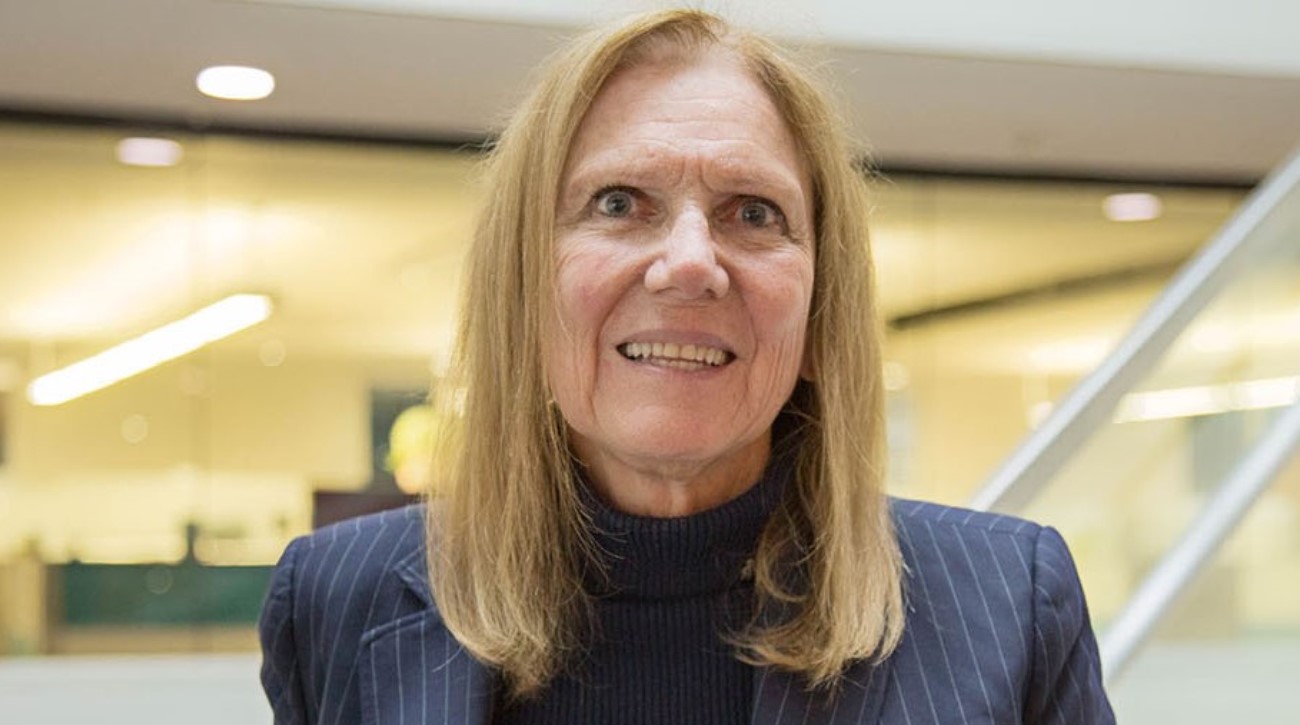From the first moment students in the George Washington University Milken Institute School of Public Health’s (Milken Institute SPH) HealthInformatics@GW program meet Patricia MacTaggart, the program’s new director, they can immediately grasp what makes her such an effective leader for the program. Whether that first meeting is online or in person, MacTaggart’s deep knowledge, enthusiasm, and interest in her students comes through loud and clear.
In addition to nearly 30 years of public service at both the national and state levels, including leadership roles at the Department of Health and Human Services and the Centers for Medicare & Medicaid Services, MacTaggart has long been the face of health and medical informatics at GWU. She helped to design both the HealthInformatics@GW program and the certificate program that preceded it, in additional to teaching subjects that are inherently linked to health informatics such as health and data quality since July 2007. In addition to working fulltime at GW for more than a decade, MacTaggart has an intergovernmental personnel agreement appointment at the Veterans Administration’s Quality, Safety and Value program, where she focuses on access to care.
Change is the only constant in health care
“The only thing consistent in health care is that it is continuously evolving and constantly changing,” MacTaggart says. “Health care is now about health and the whole person and not just about medical care. This requires information regarding both medical and nonmedical risk factors, such as housing and homelessness. It involves the entire health delivery system and requires knowledge of who the providers and stakeholders are.” Although the program is online, the Milken Institute SPH’s location in Washington, DC and MacTaggart’s connections ensure the program’s access to and inclusion of national experts.
The HealthInformatics@GW program is designed to enable graduates to optimize the information that everyone involved in health care—including the patient, providers located both inside and outside of clinical facilities, administrators, the delivery system and insurance companies—needs to effectively improve and maintain an individual’s health. To reach person-centric desired health outcomes, real-time, actionable and impactful information is needed from data that is accurate, reliable and accessible. High quality and well-designed information technology infrastructure is crucial for providing this information, and that is exactly what the HealthInformatics@GW program trains students to recognize, utilize and optimize.
“The people, processes, information, data and technology are all part of the equation, and they all build on each other,” MacTaggart explains. “You cannot survive in the business of health care, no matter what kind of a career you want to have, without understanding the intersections, the dependencies, and the value of health information technology to create and support the data and the information needed to do your job.”
Ensuring the program works for students
Most people studying health informatics have a background in either information technology or health care, but few have both, MacTaggart says. When she meets students for the first time, she asks them to tell her what they hoped to accomplish by studying for an MS in Health Informatics. “I’ve got lots of ideas, but I want to make sure that this is the best experience for you. I will do my best to help you figure out how you can make the program work for you,” she tells her students.
“The health informatics program is infinitely customizable, and I believe in meeting students where they are,” MacTaggart explains. “Our program’s goal is to help our students develop the skills needed to analyze the massive amount of data that are being collected through electronic health records, wearable technologies, smartphones and other digital applications. Health informatics specialists need to be able to translate and use data to effectively lead teams that will change the health care landscape. To ensure that graduates of our program are tomorrow’s best possible leaders, we need to begin by understanding their needs.”


